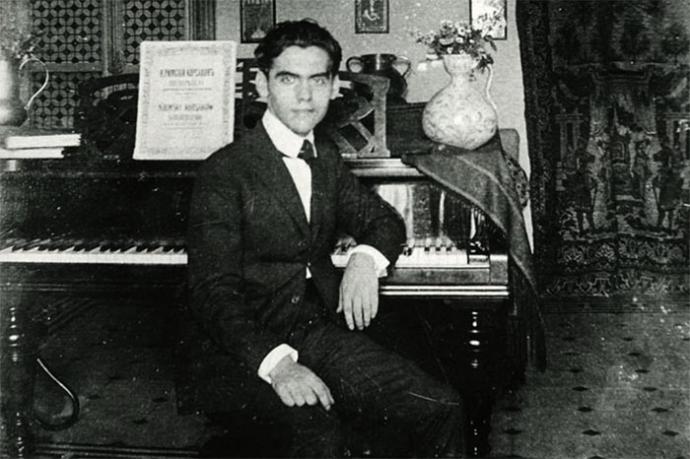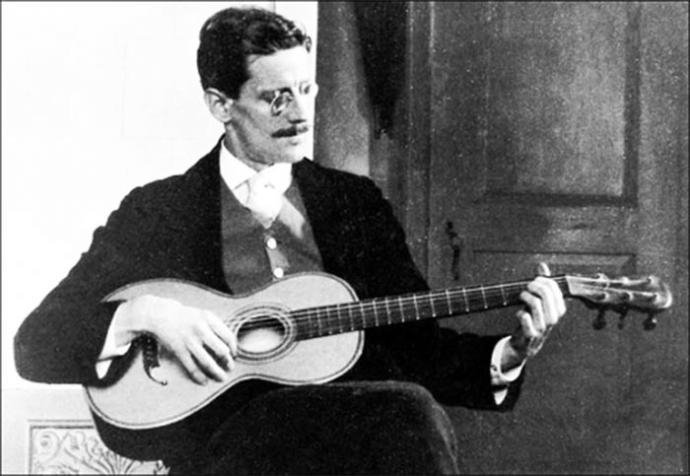The concert in question was a specially curated evening of poetry and music by the great Spanish poet and playwright, centred around Lorca’s beautiful arrangements of Spanish folksongs, idiomatically and sensitively performed by soprano Elizabeth Hilliard and classical guitarist and composer Benjamin Dwyer. Interwoven with these were recitations of some of Lorca’s most iconic poems, both in English translation and the original Spanish, performed by Irish actor Nicole Rourke, Monica Galindo of the James Joyce Centre and Andalucian journalist Antonio de Linares.
In early life Lorca felt a deeper affinity to music than literature – he didn’t start writing seriously until he was 18 - and initially he foresaw a career for himself in music, studying the piano to an advanced level. Whilst he played the guitar to a lesser extent the instrument became a recurring motif in his poetry.
Similarly James Joyce once contemplated music as a career. He was an accomplished pianist and, more notably, had a fine tenor voice: in his youth he once shared a concert stage with John McCormack, the Irish tenor who went on to be regarded as one of the great tenors of the early 20th century. Like Lorca, Joyce also played the guitar, at least to some extent. His small bodied instrument, with which he was photographed below in Trieste in 1915, is now housed in the Joyce Museum in Sandycove in south County Dublin. It was restored to a playable condition by English luthier Gary Southwell in 2013 and recordings of this guitar, played by John Feeley, can be found on Youtube.
As readers of his work will know, Joyce’s novels contain countless illusions and references to music of all sorts, from grand opera to street ballads, from music hall songs to traditional airs. Lorca too was an avid collector of popular and traditional songs. With his friend the composer Manuel de Falla he organised the first ‘Concurso de Cante Jondo’ in Granada in 1922 and flamenco and its spirit of duende suffuses his poetry.
As the recent concert clearly showed, the rhythm, imagery and musicality of Lorca’s poetry really comes alive when read aloud, something surely shared with the streams of consciousness in Joyce’s Ulysses and Finnegan’s Wake. In both cases it seems quite possible to grasp the emotional message of the language – the duende perhaps - without having to understand the meaning of every word or sentence. Maybe ultimately this is the most profound influence of music in their literary works.
(Simon Taylor 4/5/2025)
*Simon Taylor is a musician and classical guitarist based in Dublin. Formerly the CEO of Dublin’s National Concert Hall he was previously CEO of Bournemouth Symphony Orchestra; Senior Producer classical music for BBC Northern Ireland and Head of Orchestras and Performing Groups at RTE (Ireland’s national broadcaster). He has performed and recorded widely as a guitarist, most recently two concerts in Malaga.
Fo the BBC he produced radio documentaries on Andres Segovia and Spanish music and culture.
Sent by José Antonio Sierra




















 Si (
Si ( No(
No(






